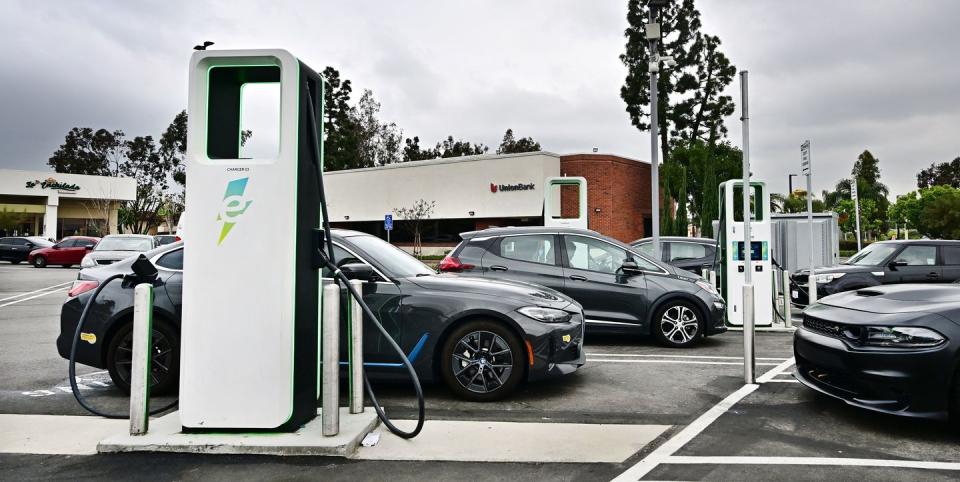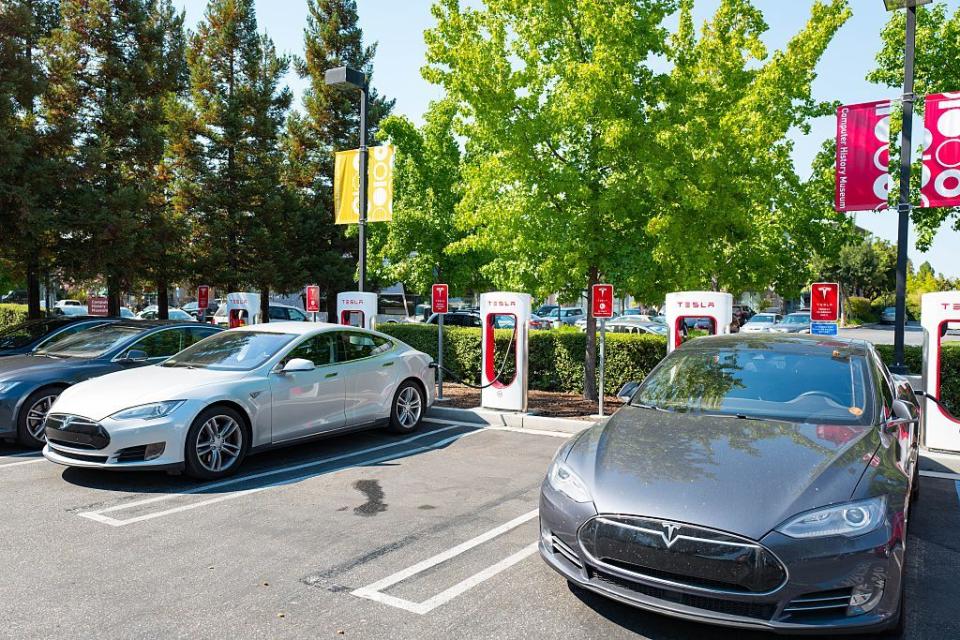A Federal Requirement Is Pushing for EV Charger Uptime of at Least 97%

Joint Office of Energy and Transportation launches effort to improve EV charging reliability through the National Charging Experience Consortium (ChargeX Consortium).
The Department of Energy will use its national laboratories, working with EV charger makers, to standardize several aspects of EV chargers, including payments and outage reporting.
In addition to five automakers, the ChargeX Consortium also includes station builders and operators like Tritium, EVgo, Electrify America, Siemens, and Chargepoint.
The biggest issue facing EV owners on road trips—after finding chargers on a long road trip—is their reliability. If we had a dollar for every time we turned up at a station and found that half or more of the chargers don't actually work, we'd probably have enough money to buy an unbelievably loud portable diesel-powered generator on Craigslist.
Following the Biden administration's announcement of plans for 500,000 charging stations to be built nationwide by 2030, the Joint Office of Energy and Transportation has revealed a new effort, led by the Department of Energy national laboratories, to address charger reliability.
Dubbed simply the National Charging Experience Consortium (ChargeX Consortium), this new group will work with the charging industry and EV makers on a number of issues that require collaboration from everyone in the industry through, among other things, increasing commercial capacity for validating and testing EV chargers in the lab and in the real world.
The consortium also aims to create a centralized data platform just for EV charger data reporting, bypassing various (usually ineffective) charger glitch reporting mechanisms on the chargers that almost never provide real-time help to stranded users. And there is a very concrete goal in mind, instead of a nebulous effort to "improve" charging everywhere: a federal requirement of uptime above 97% for EV chargers.
"The national labs provide the independent expertise needed to fix the most challenging, systemic problems that can impact the customer charging experience," said consortium Director John Smart of Idaho National Lab. "The national lab team shares a sense of urgency and has identified an aggressive timeframe that aligns with the United States' accelerating transition to electric transportation."
The consortium already counts charging station manufacturers and operators such as Tritium, EVgo, Electrify America, Siemens, and Chargepoint, as its members. Automakers that have joined the group include Rivian, Ford, Tesla, BMW, and GM.

The ChargeX Consortium will also seek to tackle one other issue of tremendous annoyance in today's EV charging world: Vastly different payment systems and apps that don't talk to each other, requiring EV owners who travel frequently to sign up for half a dozen charging networks, each with its own app. The consortium will also focus on improving vehicle-charger communication, as well as diagnostic data sharing.
"Teams working in these three areas will exchange information to help the national labs identify best practices to address common problems and share them with the entire industry," the Joint Office of Energy and Transportation said.
The consortium also plans to develop solutions for testing charging and EV software before it enters production, to make sure that all EVs can connect to every EV charger.
Some might say the creation of such a consortium is long overdue, by about a decade to be exact, with the industry having permitted too many different charging standards to develop. But EV market share has only started to gather momentum in a number of (mostly West Coast) states in the last few years, having seen just a handful of players in a few segments until a few years ago. Those old enough to remember the various video cassette and DVD format wars of decades past will perhaps nod knowingly, having experienced firsthand that it takes up to a decade for a single standard to emerge.
In a way, the EV industry has managed to outgrow a few early evolutionary dead ends when it comes to charging standards, but may not have foreseen charger reliability, as opposed to geographic reach, becoming one of the main problems of the current era.
Is EV charger reliability a bigger problem at the moment than geographic coverage or payment standardization? Let us know what you think.

 Yahoo Autos
Yahoo Autos 